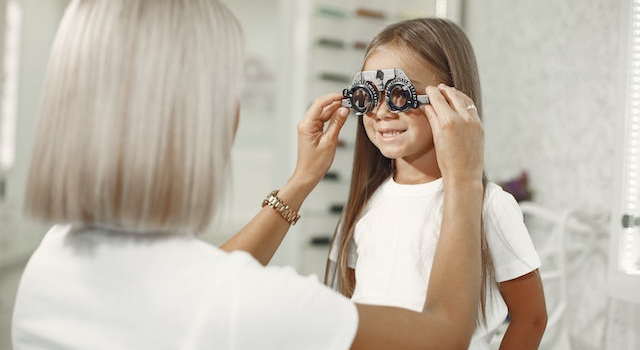
As families prepare for the upcoming school year, July is the perfect time to focus on the importance of children's eye health. Vision is critical for learning and development, making it essential to ensure your child’s eyes are healthy.
Parents often wonder whether school vision screenings are sufficient or if comprehensive eye exams are necessary. Here’s what parents need to know about the differences between children's eye exams and screenings and why comprehensive eye exams are crucial.
Understanding Vision Screenings
Schools or pediatrician offices typically conduct vision screenings to quickly identify children with vision problems. These screenings usually involve simple tests, such as reading an eye chart to assess visual acuity and identify issues like nearsightedness (myopia) and farsightedness (hyperopia). While screenings are helpful, they have significant limitations.
Limitations of Vision Screenings
Basic Scope
Vision screenings mainly focus on how well a child can see at a distance. They do not evaluate other critical aspects of vision, such as eye alignment, focusing ability, and overall eye health.
Potentially Missed Conditions
Screenings can miss more subtle vision issues, such as astigmatism, amblyopia (lazy eye), strabismus (crossed eyes), and convergence insufficiency. These conditions can affect a child's learning and daily activities.
Not Diagnostic
Vision screenings can’t diagnose eye diseases or comprehensive vision problems. They flag potential issues that need further evaluation by an eye care professional.
Variable Accuracy
The effectiveness of vision screenings can vary depending on the person conducting the screening, the environment, and the tools used. This variability can lead to inconsistent results.
The Importance of Comprehensive Eye Exams
Comprehensive eye exams conducted by an optometrist or ophthalmologist thoroughly evaluate your child's eye health and vision. These exams include tests to assess visual acuity, eye alignment, depth perception, color vision, and overall eye health. Here’s why comprehensive eye exams are essential:
Early Detection and Treatment
Comprehensive exams can detect various vision problems that screenings may miss. Early detection allows prompt treatment, preventing more severe issues and improving outcomes.
Assessment of Overall Eye Health
An eye care professional can examine the health of your child's eyes. They check for conditions such as amblyopia, strabismus, and other eye diseases that screenings cannot detect.
Customized Treatment Plans
If an optometrist sees a vision problem, they can create a treatment plan tailored to your child's specific needs. This may include prescription glasses, contact lenses, vision therapy, or other interventions.
Continuous Monitoring
Regular comprehensive eye exams allows your eye doctor to continuously monitor your child's vision and eye health. This ensures they detect and address any changes promptly.
Ensure Your Child's Vision Health with Eye Exams
While school vision screenings are useful for identifying potential vision problems, they are not a substitute for comprehensive eye exams. Relying solely on screenings can result in undiagnosed vision issues impacting your child's learning and development. Ensuring your child has regular comprehensive eye exams is the best way to protect their vision and overall eye health.
At Eyewear Gallery, we provide comprehensive eye care for children and ensure their vision is in top shape for the upcoming school year.

